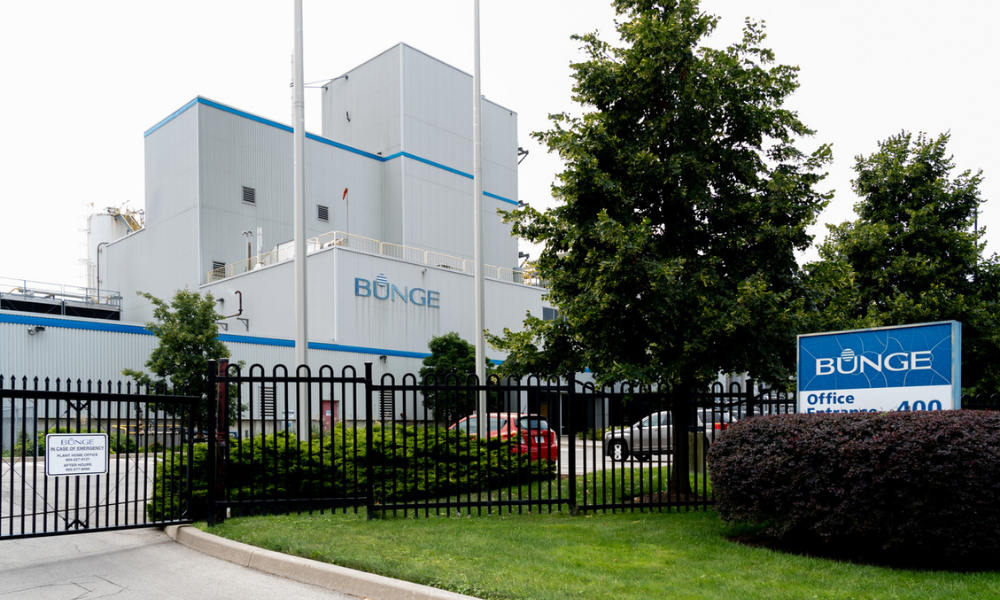
Part of employer's operations was on land leased from federal government with its own mandate

An Ontario employer’s vaccination policy is reasonable based workplace safety and the employer’s operation, an arbitrator has ruled.
Bunge Canada operates an oilseed processing facility in Hamilton, Ont. The facility is divided into two buildings, the North and South Properties. Bunge owns the land upon which the South Property is situated, while the North Property sits on land leased from the Hamilton Oshawa Port Authority (HOPA), a federally regulated organization.
On June 22, 2021, Bunge issued a COVID-19 vaccination policy to help the company better determine the need for employee vaccination clinics, appropriate safety protocols, and the risk of outbreaks. At the time, there had been six positive cases among employees.
On Nov. 2, HOPA issued a vaccination policy of its own that followed Transport Canada’s requirement that all employees of companies located at the port be fully vaccinated by Jan. 24, 2022. HOPA allowed for medical exemptions, but any employees and contractors who didn’t provide proof of vaccination by Jan. 24 would not be permitted on HOPA property.
Bunge then issued an updated vaccination policy of its own that reflected the requirements in HOPA’s policy. Ninety-three of its 125 employee regularly worked on the North Property and eight-to-12-week training courses for various positions were held there.
The union filed a grievance alleging that the vaccination policy violated employees’ personal privacy and personal information, along with employees’ privacy rights. It argued that the HOPA policy only applied to the North Property, so the application of the policy on the Bunge-owned South Property wasn’t justified. In addition, there was no evidence of any COVID-19 transmission since Bunge’s original policy was introduced and Bunge hadn’t established that the “potentially small number of unvaccinated employees” couldn’t be accommodated by scheduling them to work only on the South Property, the union said.
Recent arbitration awards have been a mixed bag on the validity of workplace vaccination policies, writes one employment lawyer.
The arbitrator found that the bulk of Bunge’s business took place on the North Property and both properties were integrated. Moving all unvaccinated employees to work only at the South Property and avoiding movement between the sites would involve a material change in Bunge’s operations that would create “significant additional operating costs” as well as a breach of collective agreement provisions on job postings, transfers, and seniority rights, the arbitrator said in finding that applying the HOPA policy to the entire facility was reasonable.
The arbitrator also found that the requirement to disclose vaccination status or a medical contraindication involved a limited amount of information that was reasonable for protecting the health and welfare of all employees. In addition, the deadline of Jan. 24, 2022, was enough time for nonvaccinated employees to meet the requirements of the policy, the arbitrator said.
“The intrusion upon an individual’s privacy with respect to the disclosure of personal health information is relatively minimal,” said the arbitrator. “Employees are only being asked to reveal their vaccine status, and nothing more concerning their personal health.”
The arbitrator also found that the requirement to be fully vaccinated was reasonable, because “the nature of COVID-19 and the risks of exposure and the potential consequences of becoming infected, particularly for unvaccinated persons, are significant.” Bunge’s business couldn’t operate with employees working remotely or off sick with the virus, and the lack of recent confirmed cases didn’t mitigate the risk, the arbitrator added.
While the policy referred to discipline and termination, the arbitrator noted that these were only possibilities and a worker was banned from the site because of their vaccination status wouldn’t necessarily be terminated, as the policy stated that they would be “put on unpaid leave pending a final determination on their employment status.”
The arbitrator determined that the vaccination policy was reasonable and dismissed the grievance. See Bunge Hamilton Canada and United Food and Commercial Workers Canada, Local 175, 2022 CanLII 43.
A B.C. worker has launched a wrongful dismissal suit after being fired for breaching a workplace vaccination policy.